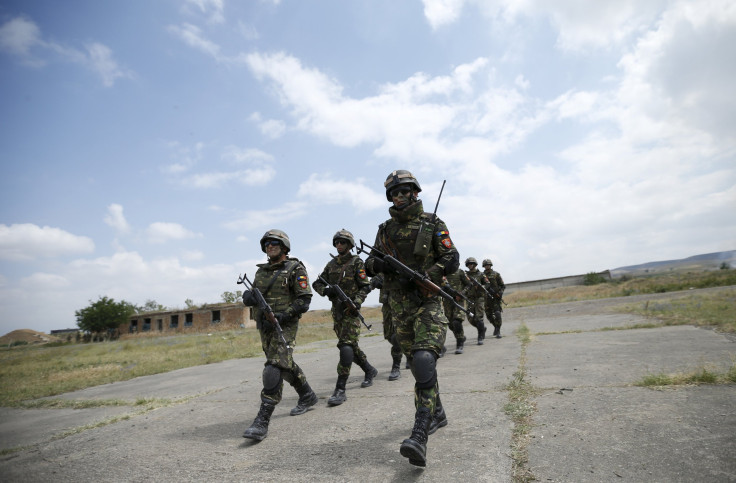Russia Calls NATO’s Europe Military Buildup ‘Absolutely Unjustified’ Ahead Of First Meeting Since Ukraine Conflict

The first meeting of the NATO-Russia Council since the height of the conflict in Ukraine is already off to a rough start. The Kremlin said Friday it would use the meeting scheduled for Wednesday as an opportunity to protest the military and political alliance’s buildup in the Baltic region.
“Today we are having a military buildup in the Baltic area, which from our point of view is absolutely unjustified,” said Alexander Grushko, Russia’s permanent representative to NATO, Agence France-Presse reported. “The shape of NATO-Russia relations is very bad.”
NATO broke off relations with Russia following the Kremlin’s annexation of Crimea from Ukraine in March 2014 and the start of war in Eastern Ukraine in April 2014. The war has pitted Ukrainian government troops against Russian-backed rebels leaving more than 9,000 people dead and 1.4 million displaced. The NATO-Russia Council last met in June 2014.
Baltic States as well as Central European states have called for an increased NATO presence in the region to deter Russia’s aggression. NATO is in the midst of its largest military buildup in the region since the end of the Cold War. At the end of March, the U.S. announced it would send an armored brigade to Eastern Europe to reassure regional allies.
The talks scheduled for Wednesday in Brussels come after Russian planes buzzed a U.S. guided missile destroyer in the Baltic Sea this week leading to strong rebukes from Washington. For the Baltic states, the flyby was a continuation of Russian actions in the region.
“For us, it’s nothing new because they fly very close, aggressively without responding, very close to our airspace borders,” Juozas Olekas, Lithuania’s defense minister, told Defense One.
Echoing Russian President Vladimir Putin’s assessment of NATO, Grushko said the alliance was encroaching on Russia’s borders and zone of influence in the region. “I don’t see any possibility for a qualitative improvement of relations if NATO continues on its path of deterrence and relevant military planning,” Grushko said.
NATO is scheduled to hold a summit in Warsaw in July to further discuss an increased military presence in Central and Eastern Europe.
© Copyright IBTimes 2024. All rights reserved.






















